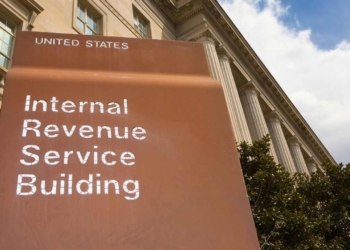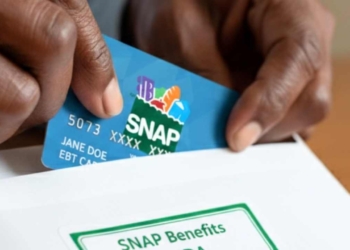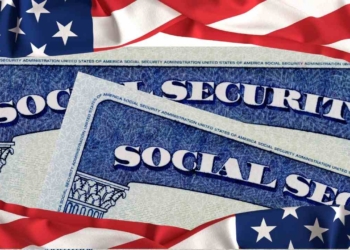Major retailers are gearing up for a significant shift as they launch a ban campaign in anticipation of a new law that will compel shoppers to adapt their habits or incur extra charges.
This proactive initiative is supported by prominent retailers such as Target, CVS, and Kroger. These industry giants are taking a stand ahead of the legislative changes set to take effect in the coming months.
Starting this week, the campaign will roll out across more than 1,000 locations in Southern California. Its primary goal is to motivate consumers to abandon disposable plastic shopping bags in favor of more sustainable alternatives.
What Shoppers Need to Know Before 2026
From January 1, 2026, a new law will come into force, prohibiting plastic shopping bags at checkouts throughout California. This legislation, passed in 2024, aims to impose fines on stores that continue to supply plastic bags.
Previously, shoppers in the Golden State faced charges for using thicker plastic bags. However, with the impending ban, these bags will be completely eliminated from checkouts.
The upcoming regulations mark a significant step towards a more environmentally conscious future, with major retailers leading the charge to make a difference. As new changes roll in, some customers might not be entirely pleased with the accompanying new price tags.
Changes in Bag Policy
Starting January, shoppers who forget to bring their reusable bags will only have the option to purchase paper bags, which will now come with a fee. Retailers are required to charge a minimum of $0.10 for each paper or reusable bag.
Exceptions to the Rule
There are specific exceptions to this rule, including:
- Bags used for prescriptions
- Bags for unwrapped food items
- Bags to protect items from damage
Additionally, individuals receiving SNAP benefits will not be subject to these extra charges.
BAG BREAK-UP: A Campaign for Change
The “Break Up With Single-Use Bags” initiative marks the largest effort of its kind in the Sunshine State. This impactful campaign is spearheaded by the Center for the Circular Economy at Closed Loop Partners.
As of this week, shoppers will notice signs throughout stores, alerting them to the forthcoming changes and encouraging them to abandon their reliance on single-use bags. These informative signs will be strategically placed in parking lots, store entrances, and checkout lanes to ensure maximum visibility and awareness.
Have you ever wondered which states have taken bold steps to ban single-use plastic bags? As environmental concerns rise, several states in the US are leading the charge in the fight against plastic waste.
States Leading the Plastic Bag Ban
Across the nation, a number of states have implemented strict regulations to prevent retailers from distributing these environmentally harmful bags to customers. Here’s a list of the states that are paving the way towards a more sustainable future:
- California
- Colorado
- Connecticut
- Delaware
- Hawaii
- Maine
- New Jersey
- New York
- Oregon
- Rhode Island
- Vermont
- Washington
Source: World Economic Forum
The Digital Campaign for Change
In addition to legislative action, the campaign to reduce plastic waste is going digital. Social media, television, and audio streaming platforms are being leveraged to spread awareness and drive change. This multifaceted approach is empowering communities and retailers to work hand in hand towards a common goal.
In recent years, the push for national plastic bag bans has gained significant momentum, aligning with a larger global movement toward sustainability.
The Rise of Plastic Bag Bans
Back in 2014, California set a precedent by becoming the first state to enforce a ban on single-use plastic bags. This pioneering move sparked a wave of change across the country.
Expanding State Legislation
Since then, an additional 11 states have embraced similar legislation, demonstrating a growing commitment to reducing plastic waste. By 2021, data from the World Economic Forum revealed that over 500 municipalities across 28 states had implemented some form of plastic bag legislation.
Impact on Plastic Waste Reduction
According to an analysis by Environment America and the U.S. PIRG Education Fund, these bans are making a significant impact. It is estimated that they help eliminate nearly 300 single-use plastic bags per person annually, on average.
Proven Effectiveness
States with these bans report positive outcomes. “The bottom line is that plastic bag bans work,” asserts Faran Savitz, a zero-waste advocate with the PennEnvironment Research & Policy Center.
As millions of Pennsylvanians and others across the country adjust to these changes, the effectiveness of plastic bag bans becomes even more apparent, paving the way for a more sustainable future.







